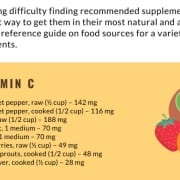Managing Colds And Flu
Flu season starts as early as October and can last through April. For this reason, we recommend that you get vaccinated against the flu if you haven’t done so already. We recommend that you wait a minimum of 2 weeks before getting any other vaccine. Or if you have just received another vaccine, wait 2 weeks before getting the flu shot.
Many may get a cold during the winter months, and for the majority of cold-sufferers, rest, fluids, and over-the-counter medications are enough to help them recover. But winter sickness can mean something more serious for the 3-11% of US residents that come down with the flu each season, with approximately 200,000 hospitalizations attributed annually to flu-related complications.
Basic Flu Prevention Recommendations
In addition to getting a flu shot, there are other precautions that you can take to lower your risk of contracting the flu or to shorten the duration of any respiratory illness.
Dr. Kaplan offers the following basic flu-prevention steps:
- Get a preservative-free flu shot. (We recommend that you wait a minimum of 2 weeks before getting any other vaccine. Or if you have just received another vaccine, wait 2 weeks before getting the flu shot.)
- Wash your hands often and thoroughly.
- Keep unwashed hands away from your mouth and eyes.
- Use a friendly cleaner to wipe down doorknobs, phones, your mouse, and keyboards.
- Get plenty of sleep (7-9 hours is optimal for most).
- Drink plenty of fluids – water is needed for your body to clear toxins and helps to thin secretions.
- Make wise nutritional choices, including limiting your consumption of alcohol, refined carbohydrates, and sugar, all of which lower immune system functioning.
- Exercise regularly, preferably outdoors. Exercise is great for an immune system boost.
- Take some deep breaths and meditate, it can boost your immune system significantly.
- Talk to your provider about whether periodic vitamin IV’s would be right for you.
Homeopathic Remedies and Supplements
Homeopathic remedies and supplements can be very effective in preventing flu infection, & they can be used in combination with other remedies. We have found the following products to be particularly useful in helping to prevent colds & flu. Please check with your provider to see which ones may be right for you.
- Take 5000 IU’s of Vitamin D3 daily. Have your Vitamin D-25-Hydroxy level checked every 3 months and aim for a level between 50 – 80.
- Oscillococcinum – ½ a tube a week through the flu season (October – April).
- Monolaurin – 2 pills twice a day through the flu season.
- Probiotics– Increase the intake of probiotics. 70-80% of your immune system cells are found in the gut. Certain probiotic strains have been shown to reduce the risk of acquiring common cold infections so take a high-quality probiotic or better yet, include fermented foods in your diet. Ask your provider how to start to include these in your diet or supplement regimen.
- Take a high-quality multivitamin.
Many of the supplements above are available to buy from our online store. We offer the highest quality supplements from manufacturers that have been vetted. Consumers should always buy supplements from a trusted source as they are not regulated by the FDA.
Treatment Strategies If You Do Get Sick
At the first sign of winter respiratory problems, there are several products you can take on your own to minimize the seriousness of an infection, including influenza. We’ve listed several below with general instructions.
Please note: if you are sure you have the flu, we usually recommend taking Tamiflu, a prescribed, antiviral medication that the Centers for Disease Control has determined is effective in treating flu. This medication must be started within the first 48 hours of experiencing flu-like symptoms. For personal guidance as to whether this would be helpful in treating your symptoms, please call our office. In any event, if you get sick with a fever of 100.5 degrees or more, please call the office at 703-532-4892, so we can give you our immediate personal assistance.
If you are already taking medication for another medical condition, you should check with your provider before taking any of the remedies described below. We also do not recommend that anyone take all of these products simultaneously, so ask your provider which combination of products would benefit you most.
Herbal Remedies:
Dispel Invasion – Take at the first sign of infection (sore throat, sneezing, fever, chills, or joint pain). Recommended dose: Take 6-8 drops in warm water every 4-6 hours for the first 1-2 days. If taking pill form, take 2 pills 3x/day for 5 days. Patients with Lupus, MS, rheumatoid arthritis, or other autoimmune diseases should not take this herbal product.
Sambucol – This product boosts the immune system and supports the respiratory tract. In addition to tablets, Sambucol is available as a cough syrup. Dosage: Take as directed by product packaging.
Monolaurin – This supplement can be taken both as a preventative and treatment method because of its ability to strengthen the immune system and fight infections. Dosage: As a treatment method, take 3 pills, 3x/day or as directed by your provider.
Homeopathic Remedies:
Oscillococcinum – Take at the first signs of flu to alleviate symptoms and shorten the duration of your illness. It will not make you drowsy, and it has no known drug interactions. Recommended dosage for acute illness: Take 1/2 tube 3 times/day for the first 3-5 days of the flu.
Umcka – Strengthens the immune system and is pleasant tasting and safe for children. Dosage: Take 6-7 drops in water every 3 hrs, but do not take for more than 5 day in a row. Patients with Lupus, MS, rheumatoid arthritis, or other autoimmune diseases should not take this product. NOTE: Do not take Dispel Invasion & Umcka simultaneously.
Supplements:
Zinc Lozenges – There is strong evidence that zinc in lozenge form reduces the severity of symptoms of the common cold. Recommended dose: Dissolve in mouth, 3-4 times daily.
Vitamin C – A powerful immune system booster that you can take as soon as you suspect you are coming down with a respiratory illness. Dosage: Take 3000 mg./day during symptoms. People who are prone to nausea should look for a buffered Vitamin C as it is more gentle on the gut and will not cause an upset stomach. For others, we recommend liposomal Vitamin C, which is better absorbed by the body.
There’s a lot you can do to minimize your risk of flu or respiratory illness but prevention from infection isn’t guaranteed. Therefore, if you do develop flu-like symptoms this winter, make sure to see your provider right away to discuss the most effective treatment options available.
We are here for you, and we want to help.
Our goal is to return you to optimal health as soon as possible. To schedule an appointment please call: 703-532-4892 x2




